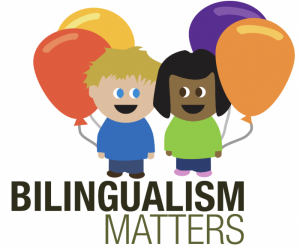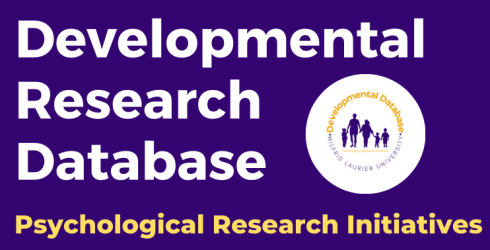The Developmental Participant Database has partnered with several developmental psychology labs. You can learn more about them below.
Child and Adolescent Research and Education (C.A.R.E.) Lab
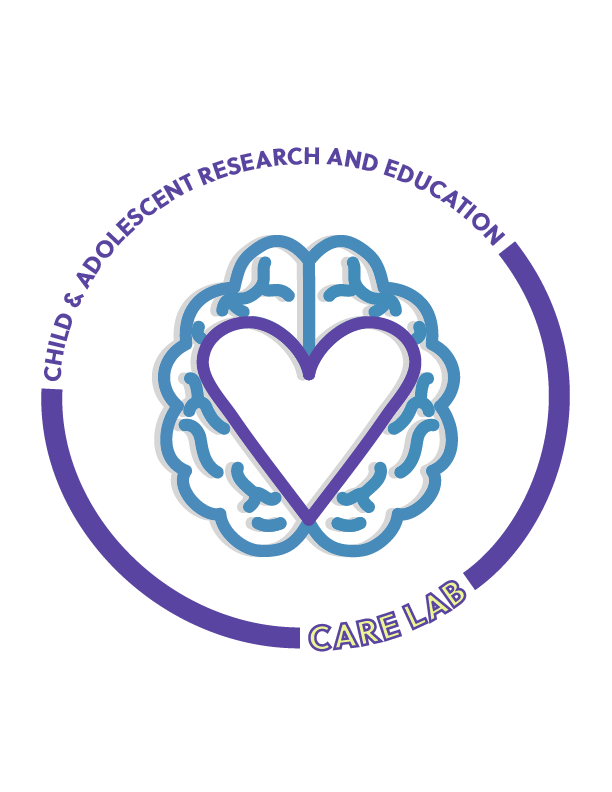
The Child and Adolescent Research and Education (CARE) Lab, at Wilfrid Laurier University, is directed by Dr. Danielle Law and structured around four interrelated teams: Research, Knowledge Mobilization, CARE Lab Connections, and Laurier and Community Outreach. CARE, through community-based projects and relationships, strives to connect relational and contextual issues that influence the social-emotional and cognitive development of children, adolescents, and young adults to educate both their minds and their hearts.
Child Memory Lab
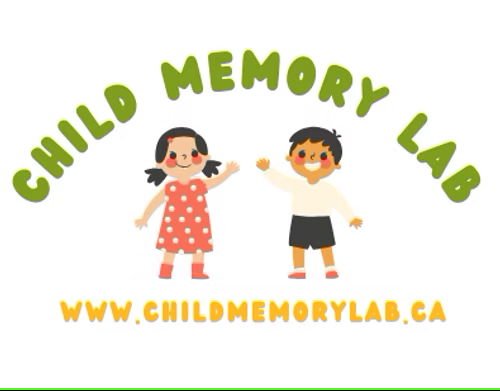
Research in the Child Memory Lab focuses on how children remember and learn. It is important to study this because police, social workers, teachers, and parents frequently need children to remember key information. My collaborators and I seek to understand how children’s memory works and what are the best ways of questioning children about their experiences and knowledge. We also work with forensic investigators on investigating different interviewing practices when attempting to extract the most reliable memories possible from children.
The Cognisant Lab

At the Cognisant Lab at Wilfrid Laurier University, we study how people experience and respond to the world around them through their senses. Our research focuses on sensory processing (how the brain interprets sights, sounds, textures, and more) especially in neurodivergent individuals, such as those with autism. By learning more about these differences, we aim to support a better understanding of how sensory experiences shape learning, behaviour, and daily life.
Language and Literacy Lab

Our lab explores oral and written language development, with areas of focus including early literacy, school readiness, language acquisition and language loss, as well as code-switching in bilingual and multilingual families. Our research spans from preschool aged children to adults, encompassing the developmental perspective through both an individual and family-based lens.
Morality, Aggression, and Prosociality (MAP) Lab
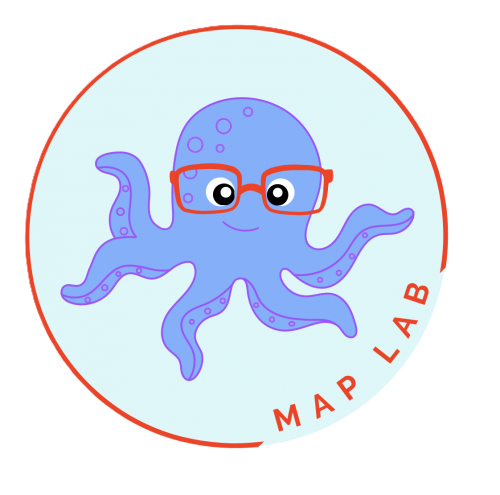
In the Morality, Aggression, and Prosociality lab (MAP Lab), we study social-cognitive development in early and middle childhood. Our research explores how children’s social experiences colour their beliefs about right and wrong, and how they learn to make decisions in everyday situations.
One of our current projects examines when and how children start considering the consequences of unfairness for those who are disadvantaged. Another one of our projects investigates how children think about honesty and lie-telling, and what types of things make children more or less likely to tell the truth.
To address these questions, we use a range of methods such as interviews, questionnaires, and games. Above all, we make sure that every family who visits the MAP Lab has a fun and positive experience!
Morality, Identity & Environmental Sustainability (MIE) Lab

Many people consider morality to be an essential part of themselves, yet, this subjective perception often does not lead to corresponding actions. Why? The MIE research group addresses this simple but fundamental question from many different angles. We want to understand what mechanisms strengthen or weaken the link between moral identity and moral action, and how these links develop from childhood through adolescence into adulthood. We apply this research perspective to real-life problems, such as pro-environmental behaviour and individuals’ online activities.
Self-Regulation, Emotion, and Aging (SEA)Lab
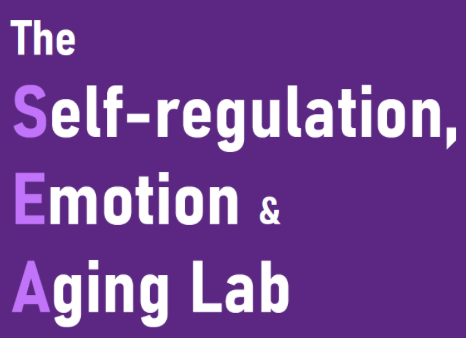
At the SEA lab our research examines how emotions and self-regulation shape well-being across the adult life span. We always have new and exciting studies running in our lab! If you’re interested, please use our contact information below. We look forward to hearing form you!
Language Acquisition, Multilingualism, and Cognition (LAMC) Lab
Bilingualism Matters is a research-based information and service centre dedicated to exploring and promoting bilingualism and language learning. We operate out of the Language Acquisition, Multilingualism, and Cognition (LAMC) Laboratory—the first Bilingualism Matters site in Canada. Our goal is to make research on bilingualism accessible and meaningful for everyone, from families and educators to professionals and community members. One of our current projects examines how immersive language experiences shape the way people learn and use new languages. Through our studies and outreach, we aim to raise awareness of the cognitive and social benefits of bilingualism, empower multilingual families, and encourage more positive and inclusive attitudes toward language learning in our community.
